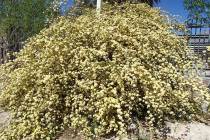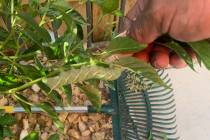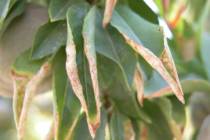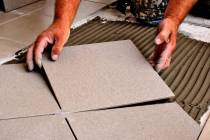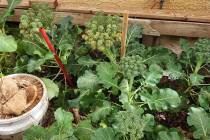An eye on home safety
A new survey by the national nonprofit Home Safety Council reveals that while the vast majority of U.S. adults think about home safety, most are not taking action to make their homes a safe environment. Results show only one-third (36 percent) of respondents said they have ever taken a safety action in their own home.
To help the public take action and make their homes safer, the Home Safety Council is providing simple steps families can follow to protect against the five leading causes of home injury: falls, poisonings, fires and burns, choking/suffocation and drowning.
While many people feel safest in their homes, Home Safety Council research shows that nearly 20,000 deaths and 21 million medical visits occur on average each year from injuries in and around the home. In an effort to reduce the toll of home injuries, the Home Safety Council is issuing a national call to action and encouraging all families to be hands-on home safe.
“Taking a hands-on approach to protect against the leading causes of home injury requires a daily commitment, but the actions we are encouraging families to take are simple and do not require a lot of time or money,” said Meri-K Appy, Home Safety Council president. “Making even a few small changes today can go a long way toward improving safety and preventing injuries in the home.”
Simple tips to put to everyday use
Follow these simple steps to protect your family from the leading causes of home injury.
Prevent falls
* Have handrails on both sides of the stairs and steps.
* Use baby gates at the top and bottom of the stairs, if babies or toddlers live in or visit your home.
Prevent poisonings
* Lock poisons, cleaners, medications and all dangerous items in a place where children can’t reach them.
* Use medications carefully. Follow the directions. Use child-resistant lids.
Fire safety
* Have working smoke alarms and hold fire drills. If you build a new home, install fire sprinklers.
* Stay by the stove when cooking, especially when you are frying food.
Prevent choking and suffocation
* Things that can fit through a toilet paper tube can cause a young child to choke. Keep coins, latex balloons and hard round foods, such as peanuts and hard candy, out of children’s reach.
* Clip the loops in window cords and place them up high where children can’t get them.
Water safety
* Stay within an arm’s length of children in and around water. This includes bathtubs, toilets, pools and spas — even buckets of water.
* Make sure children swim with a grownup. No child or adult should swim alone.
For more tips and tools to be hands-on home safe, visit www.homesafetycouncil.org.
Courtesy of Family Features













